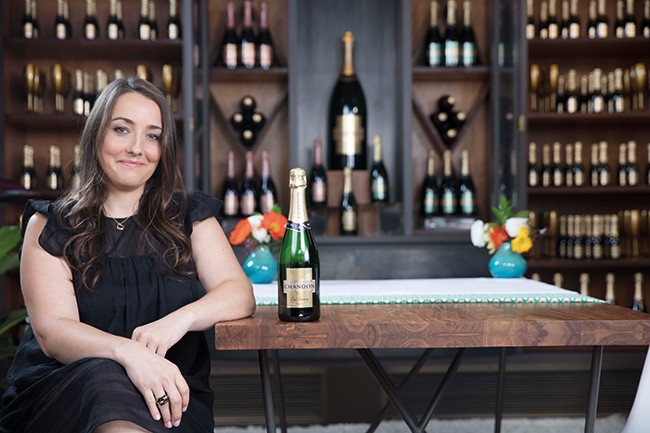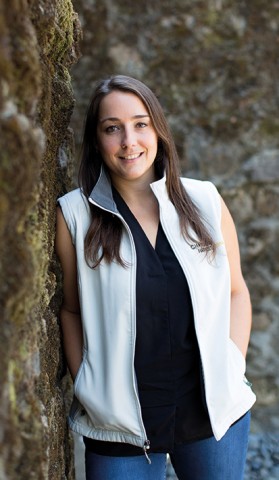
Describe your formative experiences with wine, how it is you came to work with it, and what inspires you to continue.
I grew up in the Champagne region though not in a traditional winemaking family. My parents bought an Aube vineyard when I was 10, and it was at the age of 14 I decided to be a winemaker, and in this I've never wavered. When living in Champagne it's natural to often enjoy it but I chose a practical background with my education studying viticulture and enology, one step before the other. I acquired my enology degree 2005 in Reims during which I did a ten month internship at Moet & Chandon during a boom in rose Champagne and so experienced it from the basic to the Dom Perignon versions. After that I worked a short time at Nicolas Feuillate then returning to Reims for my master's degree. After I returned to Moet & Chandon where I was offered to go abroad to Argentina, Australia, or California. I chose California to improve my English and because my brother and father previously had favorable experiences in the US. I began in Yountville August 2006 for a three month internship and never left.
Had you considered other career pursuits?
If I hadn't succeeded in my schooling for winemaking I don't know what I would've done.
What in California has inspired you?
With a Champagne 'mind' coming here was a big eye-opener. I was surprised by the diversity of Napa's terroir, especially the climate variations within it. Two weeks of ripening differences can occur in 25mins. drive. I've had great mentors such as Richard Geoffroy in France and Tom Tiburzi here in Yountville who pushed me to meet consumers, to spend time in the visitor center to know what consumers like to drink.
Are there other sparkling wine areas you appreciate?
I went to Australia in 2011 for five months which was very interesting, and once also worked a bit in our Argentina location; I'm always interested in tasting wines from other parts of the world..

What should sommeliers communicate in differing between California sparkling wines and of Champagne?
Sparkling is about three things; how it's made, the grape varieties, the location. We at Chandon want to make wines representative of where we find the grapes. Here we make wines that are fruitier and more vibrant than those from Champagne though we use the same grapes and methods of production; we want to announce what California offers.
With a nod to current sociopolitical events, what differences have you noticed working in the US and France?
I don't think expectations are different for the same position. I've lived in the US for 12 years, and haven't been in France long lately, but I think it depends upon the organization one works for. Nowadays women tend to be well accepted, there's a big push for equal rights in the workplace so it's made things easier for women to move up in organizations. Whether in France or the US it's still a male-dominant environment, maybe more so in France than the US, but wherever one is there sometimes exists small difficulties.
Have you a favorite personal wine & food pairing?
The great thing of sparkling wines is that they can pair easily, but I think Chandon Rose can be good match with a burger, and something that people don't easily think of.
What're your thoughts concerning the possible Champagne appellation expansion? Is it merely to fulfill a continuous increasing demand for Champagne or has climate change and increased technical knowledge something to do with it?
The Champagne appellation has not changed for a long time, so reviewing this would be a great thing. There are great terroirs and regions currently left out that deserve to be in. I do not think demand drives this change otherwise it would have been done many years ago; it's really a terroir approach.
With the increased curiosity for new styles and interpretations of traditional wines along with the betterment of wine production, may we soon see quality sparkling red wines from Pinots Meunier and Noir from California?
Yes, definitely. Showcasing the characteristic of the Pinot Noir and Meunier from California, especially from the Carneros regions is so important. We get such intensity and aroma diversity expression from those two varieties creating very interesting wines.
David Furer